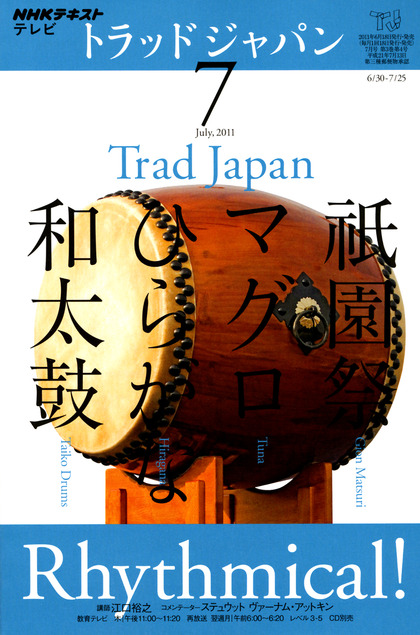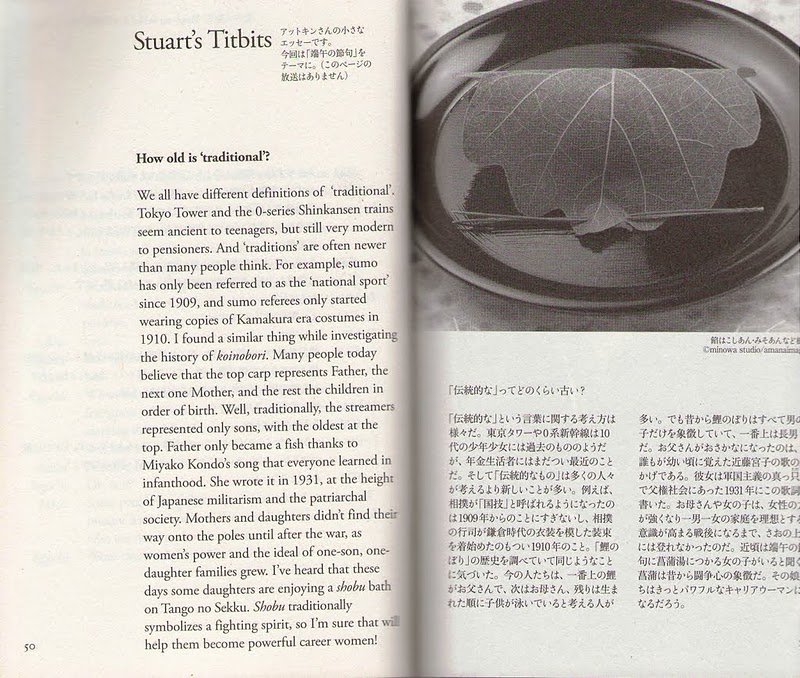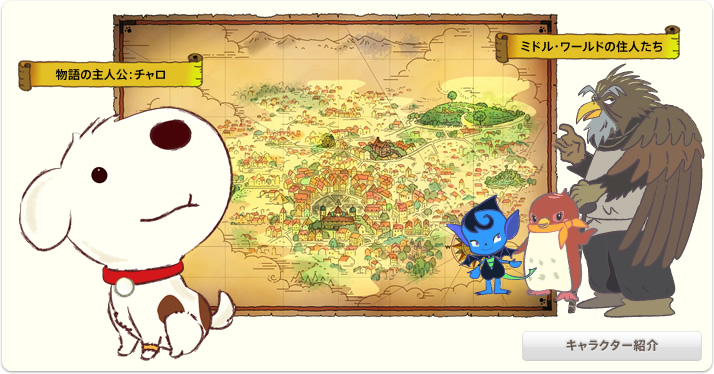A little background here: I wrote some posts on Japanese language/culture for an internship application. I didn't win the internship (no surprise), but I'd still like to share the posts, because I worked hard on them and I think they're interesting.
Japanese people really, really want to learn English. as evidenced by the sheer amount of English learning material produced and consumed in Japan. Most of us know the problems with traditional English learning in Japan: too heavy reliance on kana pronunciations, overly focused on rules and not focused enough on fluent, self-generated speech. While they may not be famous for good oral proficiency, most Japanese people do pretty well with written English, and they’re trying really hard to get better at speaking. What are they doing right?
Trad Japan

NHK, Japan’s public broadcasting company, has a large English-teaching empire. One facet of this is the monthly Trad Japan. The magazine is a collection of short essays about Japan in Japanese and English, with explanations of tricky phrases.

To round it out, they’ve transcribed some interviews with a proper-sounding British person (you know, to get conversational English in there). The website has English audio samples of the material, and it really looks like they’re doing their best to keep adult learners interested by discussing Japanese culture from a westerner’s point of view while using real English.
Little Charo 2
From the same company comes English education for Japanese children. The cartoon Little Charo 2 (リトル・チャロ2) is set in a universe where animals speak English (humans still speak Japanese). English becomes a cipher to decode; the key to understanding the fantasy-like “middle world.”
The series has a website where children can test their knowledge with quizzes and role-playing video clips (completing the “scrambled scenes” rewards you with the Japanese of the English sentences). Little Charo even has his own DS game: (embed this youtube video here)
Along with Little Charo 2, NHK has a variety of bilingual shows for adults. Personally, I’d love it if we had some bilingual shows other than Dora the Explorer and more language learning DS games. NHK has the right idea: make language learning part of your daily entertainment, and make it fun with good design and interesting content. What aspects of Japanese English-learning material do you admire?
NHK, Japan’s public broadcasting company, has a large English-teaching empire. One facet of this is the monthly Trad Japan. The magazine is a collection of short essays about Japan in Japanese and English, with explanations of tricky phrases.
To round it out, they’ve transcribed some interviews with a proper-sounding British person (you know, to get conversational English in there). The website has English audio samples of the material, and it really looks like they’re doing their best to keep adult learners interested by discussing Japanese culture from a westerner’s point of view while using real English.
Little Charo 2
From the same company comes English education for Japanese children. The cartoon Little Charo 2 (リトル・チャロ2) is set in a universe where animals speak English (humans still speak Japanese). English becomes a cipher to decode; the key to understanding the fantasy-like “middle world.”
The series has a website where children can test their knowledge with quizzes and role-playing video clips (completing the “scrambled scenes” rewards you with the Japanese of the English sentences). Little Charo even has his own DS game: (embed this youtube video here)
Along with Little Charo 2, NHK has a variety of bilingual shows for adults. Personally, I’d love it if we had some bilingual shows other than Dora the Explorer and more language learning DS games. NHK has the right idea: make language learning part of your daily entertainment, and make it fun with good design and interesting content. What aspects of Japanese English-learning material do you admire?
No comments:
Post a Comment